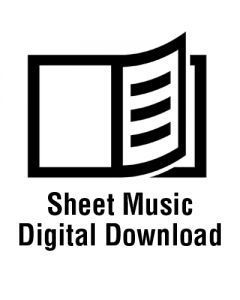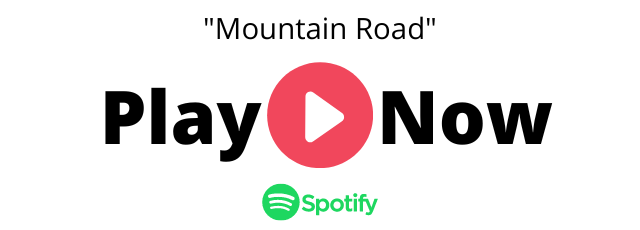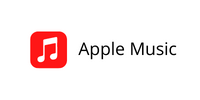Free Online Piano Lessons by Guy G. Faux
Piano Lesson #1
Mountain Road

Step 1: Click the link below to download the sheet music for Piano Lesson #1.
Step 2: Click the "Play Now" button below to listen to song #1. Try to follow the sheet music as the audio plays.
This may be challenging at first, but with a little practice, you will be able to follow the written sheet music for each new lesson.
Step 3: Use the diagram below to help you find Middle C on your piano keyboard.

Place your right hand thumb on Middle C once you have located it on your keyboard, and then cover the next 4 white keys to the right with the remaining 4 fingers of your right hand.
- Once you have done this, your hand will be in the exact position to play the entire right hand melody to Mountain Road. This is called a 5-finger position starting on Middle C.
If you need to label the keys to help you locate the keys faster, ABC Key Stickers are an inexpensive solution and something that I highly recommend.
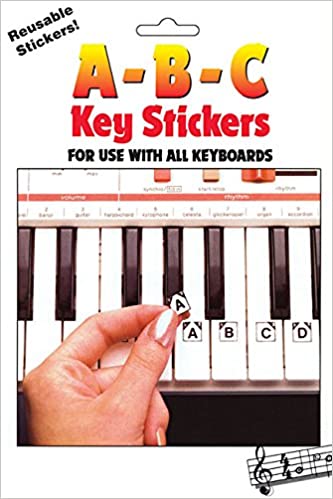
A New Way Of Playing
As a kid, I took 13 years of traditional piano lessons. When I turned eighteen, I quit. The main reason why I quit, was because I really didn't understand how music worked. I'll talk more about this in later lessons.
- In any event, I met a self-taught musician in college who taught me a new way of playing the piano. This guy never had a piano lesson in his entire life, but he could learn a song just by listening to it on the radio. This guy definitely understood how music worked.
I will be uploading two new piano lessons every week for the next 18 months. The piano method that I will be teaching you over the next year and a half is the exact method that my self-taught musician friend taught me!
How My Online Lessons Work
In this first lesson, and throughout the remaining 155 lessons, you will learn 3 simple musical elements. These 3 elements are: melody, chords and rhythm - and they make up every song ever written.
In the sheet music example below, the C and E on the top music staff are melody notes and they get played with your right hand, and the C and G on the bottom staff are played with your left hand.
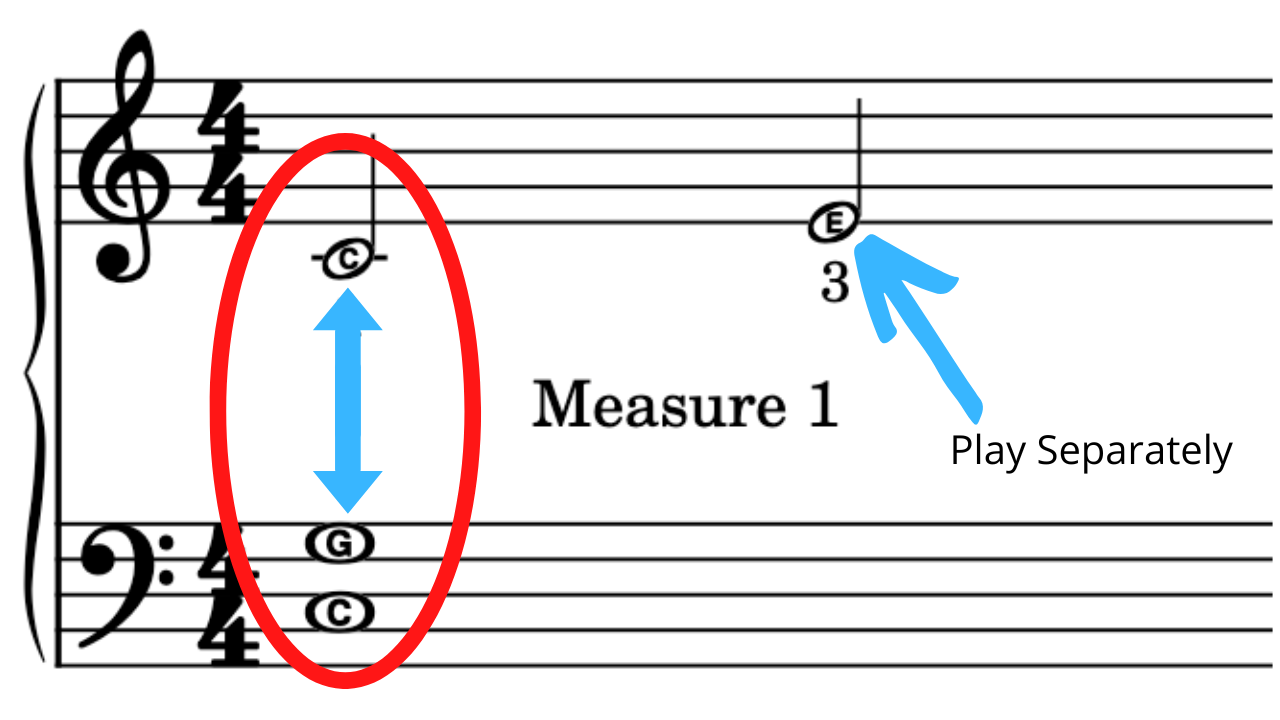
- Notice that the C and G on the bottom music staff are stacked together. This is a 2-note chord, and these two notes get played together at the same time.
Also notice that the single note C on the top staff lines up vertically with the 2-note chord. Since all 3 notes are stacked vertically, they all get play together at the same time. This will be true with any notes that are stacked together.
If you look at each measure of Mountain Road, (see sheet music example below), you'll notice that there is a 2-note chord and a single, right-hand melody note above it at the beginning of every measure.
- The 2-note chord and melody note will always get played together throughout this song.
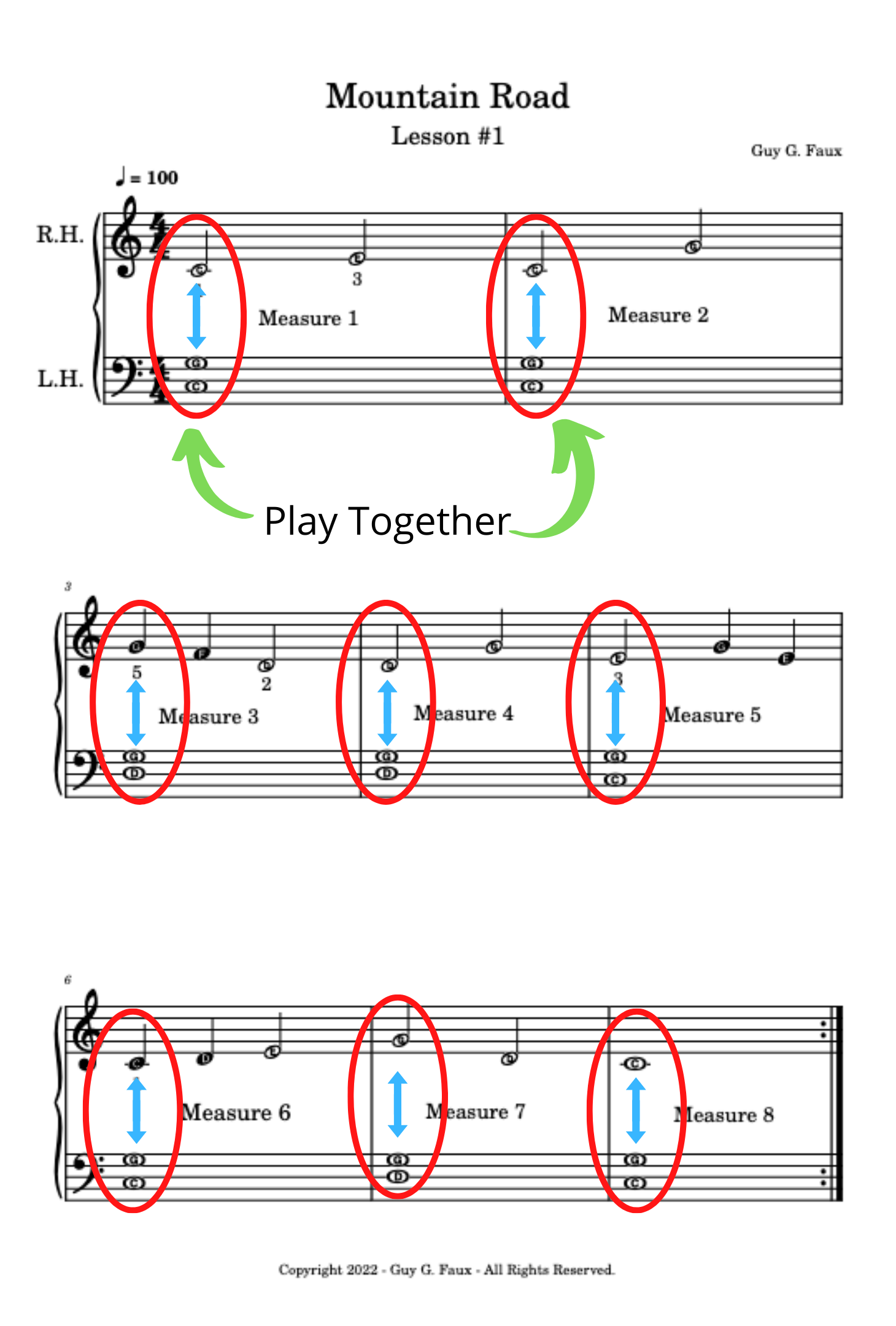
Your Assignment
1.) Learn the right hand melody notes on the top staff.
2.) Learn the 2-note, left hand chords on the bottom staff.
- There are only two chords. The C and G, and the D and G. In Lesson #6 you will begin to play, fuller sounding 3-note chords.
Notice the numbers above and below certain notes. (Refer to the sheet music download) These numbers will always refer to the fingers that you should use to play each note. Your thumb is always #1 and your pinky is always #5.
- In the example below, take notice that the 2-note left hand chord should be played with your left hand pinky on the C, indicated by the 5, and your left hand thumb on the G, indicated by the 1.
- The right hand melody note, (middle C), gets played with your right hand thumb, and the E gets played with your 3rd finger.
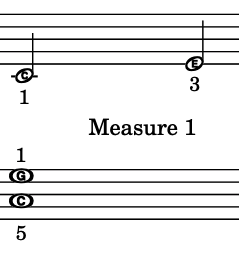
3.) After you've learned each hand separately, begin to play both hands together.
4.) Continue to listen to the recording for several minutes every day.
- Even
if you don't have time to practice at the piano, you can still get
effective practice time by listening to the song and allowing the
rhythms to gradually become a part of your thought process.
It's the one technique that most traditional piano teachers don't teach their students -- and yet, it's one of the most effective practice techniques that you will ever learn.
- It's one of the techniques that my self-taught musician friend taught me. In fact, he emphasized it as the most important skill for any musician.
The more you listen, the easier it will be to play the rhythms exactly the way they're written in the sheet music!

